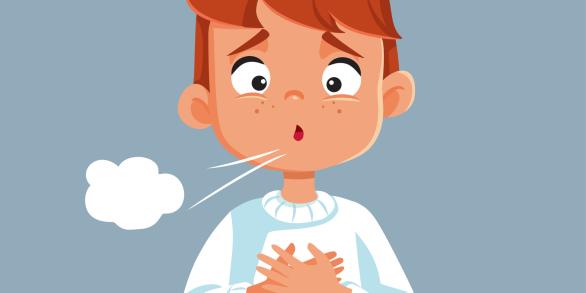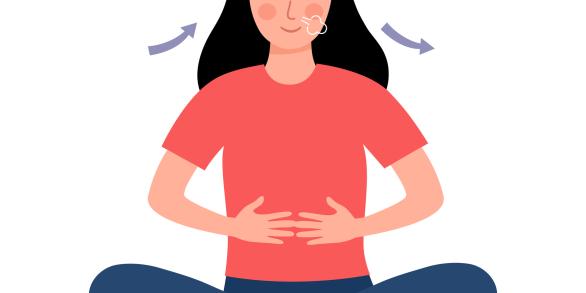We're hiring ! Join us and make a difference in our hospitals
Respiratory allergies (and allergic asthma)

What is a respiratory allergy?
A blocked or running nose, itching eyes, sneezing, night cough, breathing problems...
Whether chronic, persistent or seasonal, these symptoms can be the sign of a respiratory allergy (such as hay fever) and/or an asthma of allergic origin. Not all cases of asthma or rhinitis are attributable to an allergy. However, it is important to know whether or not this is the case as this will determine the choice of treatment, its effectiveness and even certain reimbursements!
Care
The H.U.B’s Asthma and Allergic Diseases Clinic offers diagnosis and treatment for persons with these diseases or who present respiratory or skin symptoms of the allergic type.
Diagnosis and follow up
- First consultation: The person is seen by a pneumologist who notes the symptoms, their frequency and the moments and circumstances in which they appear. The doctor will also carry out a spirometry test which is a simple test that measures the respiratory function. A prick test is also carried out to identify the allergen(s) responsible for the symptoms. This skin test involves placing a drop of the allergen on the arm and then pushing it beneath the epidermis using a fine needle. The patient should also have a blood test the same day at the Testing Centre. There is no need to fast. In all cases the doctor will already be able to diagnose treatment to relieve the symptoms.
- Tests for asthma: if asthma is suspected,
If the respiratory test shows a bronchial obstruction, a bronchodilatation test is carried out immediately;
If the respiratory function is normal, the person is asked to return for a bronchial provocation test using histamine. Carried out under medical supervision, this test makes it possible to either rule out or confirm asthma with quasi certainty.
- Second consultation : 6 to 8 weeks later, the patient returns for a consultation. Aims: to assess the response to the symptomatic treatment and to discuss the blood test results and other treatment that could be considered.
- Follow-up consultations : Once the asthma or respiratory allergy is under control, follow up is proposed at a frequency that depends on the severity of the condition.
Good to know: Depending on the case and needs, the H.U.B.’s Asthma and Allergic Diseases Clinic proposes joint consultations. This enables patients to see a pneumologist and ENT specialist at the same time or, in the case of a skin allergy, a pneumologist and dermatologist.
Persons with asthma can also benefit from treatment education programmes at the School of Asthma.
Treatment
Treatment for a respiratory allergy depends both on the allergens in question and the symptoms.
- Symptomatic treatment includes antihistamines taken orally, corticoid-based nasal sprays and eye drops.
- Immunotherapy consists of modifying the immune response of the patient, causing it to evolve from an allergic status to a tolerance status in regard to the allergen. Immunotherapy often involves taking tablets that melt on the tongue or otherwise drops. This treatment is effective but it is relatively long and costly. It is only reimbursed if the asthma is caused by an allergy to dust mites and associated with a dust mite allergic rhinitis.
- Asthma treatment (bronchodilatators, anti-IgE, anti-interleukins, biological treatment, etc.) is varied and depends on the type of asthma. As the illness varies over time, the treatment must be adapted accordingly.

Advice
Treatment by avoidance is always recommended in the case of allergies. This involves avoiding as much as possible exposing oneself to allergens or applying certain measures to reduce to the maximum exposure to the allergens. For example: washing sheets at 90°C; airing rooms in winter when it is cold; in the case of allergy to dust mites, closing the windows when pollen is at a peak (allergies to grains and other pollens), etc.

Research
The main line of translational research pursued by the H.U.B’s Asthma and Allergic Diseases Clinic concerns inflammation of the lower respiratory tract (bronchi). Doctor researchers work on the use of exhaled NO to guide immunotherapies and biological therapies as well as on induced expectorated sputum as a means of identifying the phenotype of an asthma and to guide treatment.
Related service
Related doctors

